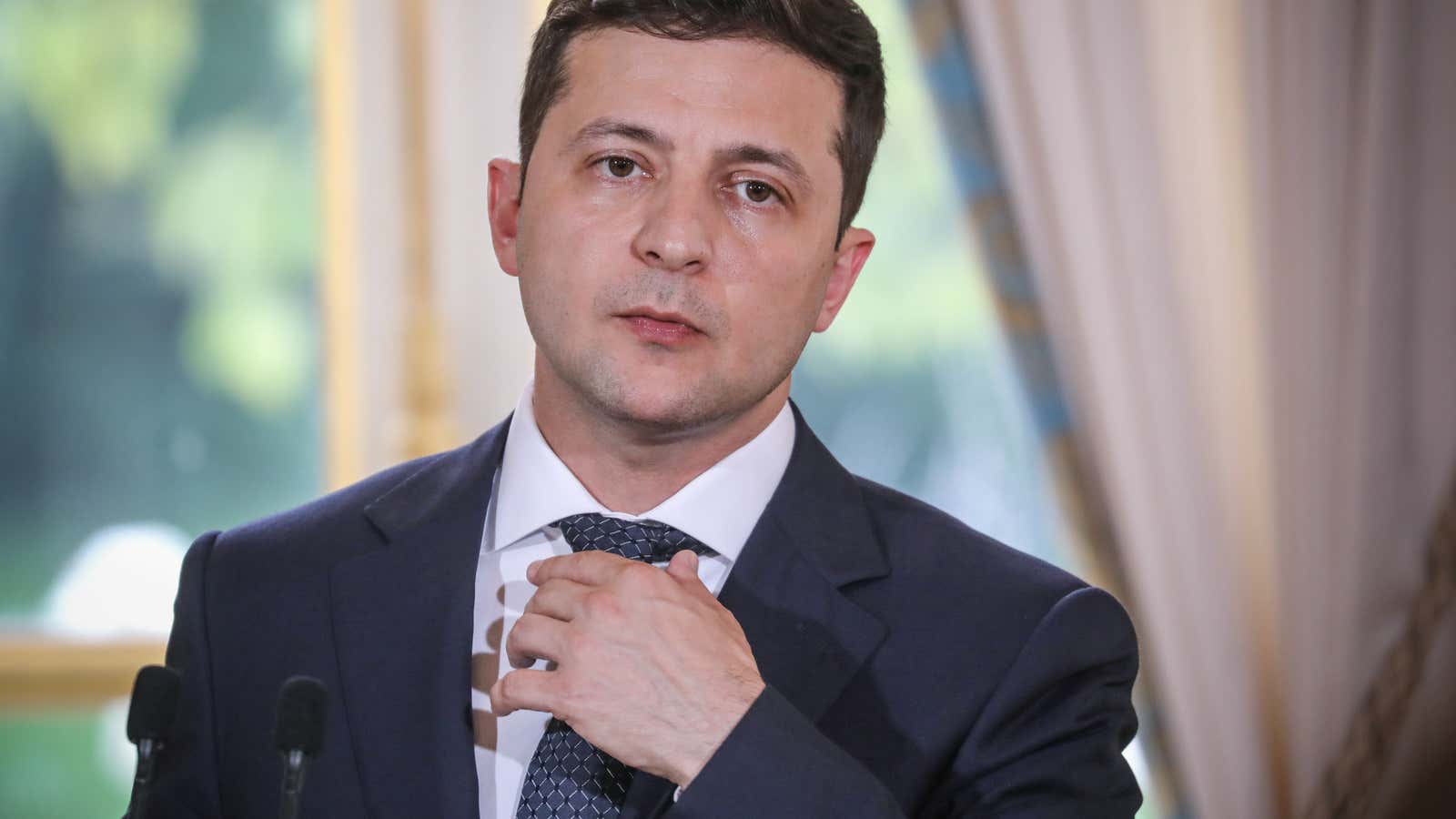Volodymyr Zelensky’s rise to the Ukrainian presidency via TV stardom was perhaps even more postmodern than Donald Trump’s triumph in the US.
Trump rose to wider fame through a book he didn’t write and a TV program that staged reality. Zelensky is an actor who played an idealistic nobody who somehow became a fictional president. After the comedy he starred in became a hit, Zelensky mimicked his character by running on an anti-corruption platform and even naming his party “Servant of the People”—the title of the show.
Now Trump and Zelensky are embroiled in a scandal befitting a cynical political satire: Trump is accused of pressuring Zelensky to drum up a phony investigation against a rival’s son. How did Trump allegedly twist Zelensky’s arm? By withholding money to be used in a war, in which Ukraine’s opponent—Russia—claims not to be involved in at all. (Trump denies allegations that he withheld aid for that reason.)
Ukrainians, of course, have already elected and then ejected an oligarch who claimed to want to clean up corruption—or “drain the swamp” in Trump’s terms. Zelensky, however, is only a step away from the oligarchy that rules Ukraine—leading to questions over whether he is really the one in charge. Words attributed to Zelensky in the White House memo recounting his July 25 conversation with Trump mirror one of the US president’s favorite phrases.
Zelensky’s campaign and presidency have been shrouded by concerns about his relationship with oligarch Igor Kolomoisky. Until recently, the tycoon had spent two years in exile, as prosecutors mulled criminal charges over a $5.5 billion hole in Privatbank, which he owned until the government was forced to nationalize it in 2016. Zelensky’s show aired on Kolomoisky’s TV channel, which gave him extensive exposure during the campaign, and the actor has appointed the oligarch’s lawyer as his chief of staff. Kolomoisky has denied funding Zelensky’s campaign.
Western institutions were initially cheered by moves Zelensky’s prime minister has taken to strengthen rule of law and liberalize state structures. That enthusiasm has become dampened in recent months, with Kolomoisky returning to Ukraine, being pictured in the president’s office, and hearing that the government wants a “compromise” over the Privatbank charges. Meanwhile, the home of one of his chief enemies has been raided by police, and her dacha, a country house, was burned down. Kolomoisky denies any connection to the incidents.
Zelensky says he has stood up to at least one tycoon, however. His spokesman says that, when pressured in a phone call with Trump to intervene in an investigation, Zelensky told the US president that his administration has a strict policy of not meddling with law enforcement. The White House document doesn’t capture him expressing that sentiment on July 25.
